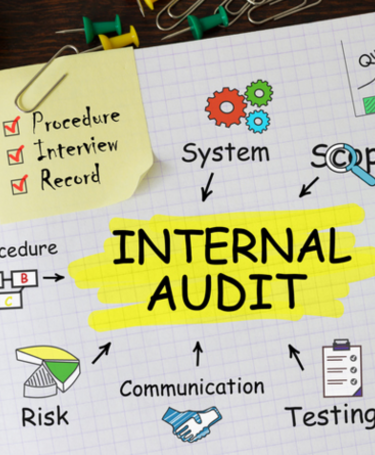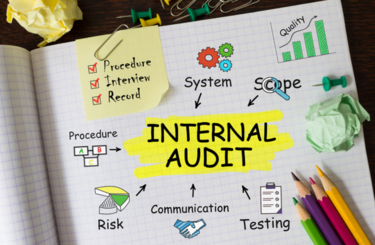
Effective internal audits

Yemi Shodipo, Director of Charis The Training Company, offers his tips to help auditors carry out successful internal audits
Internal quality audits that consistently demonstrate good practice will help motivate more organisations to embrace audits as an important and valuable part of their operations.
Whether you’re a newly qualified auditor or have been auditing for many years, the following points will allow you to develop positive and professional relationships with your clients, and carry out internal audits with minimal disruptions:
1. Communicate. Communicating well before the audit has been conducted will help pave the way for a smooth, flawless audit. No matter how small the organisation is, you must provide the auditee with an audit plan ahead of the audit, and re-confirm their availability close to the date.
2. Audit as you would like to be audited. Nobody likes a ‘know-it-all’ auditor, who speaks and never listens; who believes he or she wields an authority over people’s jobs; who takes delight in driving fear into everyone he or she speaks to. The auditor should be respectful, engaging, curious, a good listener, and not cloud his or her judgment by preconceived ideas.
3. Be meticulous. The auditor should be thorough, by working through audit trails to effectively close them; gather a satisfactory amount of evidence before arriving at conclusions; interview a wide range of personnel, and take detailed notes. After all, auditing is an art, so doing it well will earn the respect of the auditee.
4. Value-added findings. Audit findings that appear pedantic and above what can be reasonably expected in an operational environment, will only serve to irritate the auditee.
Auditors should recognise that it is possible to audit a system and find no non-conformities on the day. However, this should not drive an auditor into focusing on small findings, such as a grammatical error in a documented procedure for welding on a steelworks shop floor. Except, of course, where that error could potentially be interpreted as an incorrect instruction.
5. Audits should help to create efficiency, savings and remove bureaucracy. The ability to do this is one of the key characteristics of a truly skilled auditor. An auditor whose audit helps to make the auditee’s work easier will help to increase their efficiency and productivity in the workplace.
6. Don’t be negative. Auditors should not be negative, either in their spoken or written communications. They should recognise that they are part of the organisation’s system. They are not inspectors and should have a cooperative approach with their auditees.
If something urgent has been flagged up, the auditor should bring it to the attention of the auditee. Simply mentioning something in passing and then raising it as a major non-conformity in the report will be off-putting to auditees and create a negative environment.
7. Remove fear from the audit process. An auditor who can remove the element of fear and put auditees at rest will get the cooperation of the auditees.
8. Effective corrective action plan. Corrective actions that give clarity of action to the auditee and any required support he/she may need, will help to keep them motivated.
9. Raise non-conformities against processes, not people. A good indicator of a professional audit is one that is focused on processes, annotated relevant audit evidence with supported information, which may include the names or initials of relevant personnel in the auditing process.
10. Take risk-based samples. Sampling is at the core of any good audit practice, but a good audit must balance the quantity of sampling with the process risks involved. Higher risk process steps should require that more samples are reviewed than for lower risk processes. Being flexible and appropriate in sampling makes for effective, value-adding audits.
Internal auditing is a key component of every management system, providing independent feedback to management on the effectiveness of processes within the system. It is a primary tool for checking on the system and putting guidance into actions that can improve the management system. As an internal auditor, you have an important role to play. Adhering to some of these tips will help you to carry out effective internal audits and add more value to your organisation’s systems.